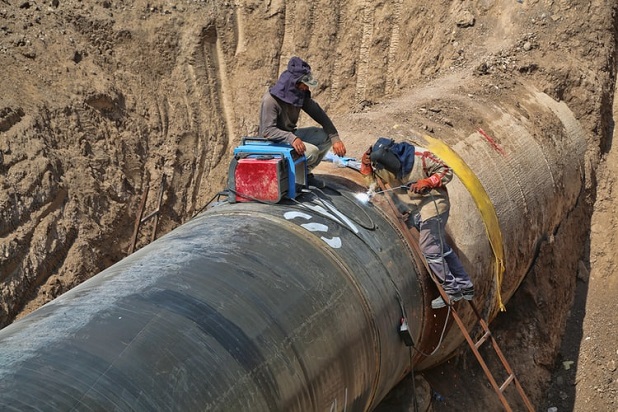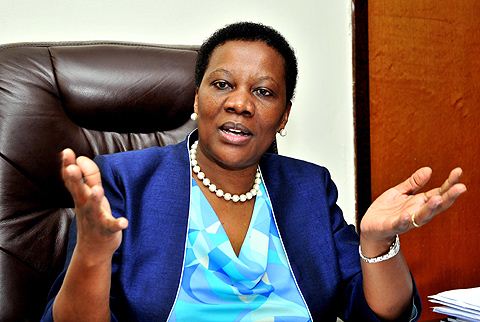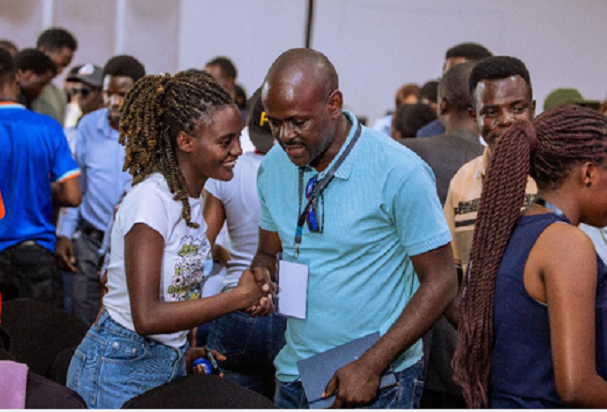Antonio Querido, the FAO Uganda Country Representative
The Food and Agriculture Organisation (FAO) has recommended to the Government of Uganda to consider the possibility of banning of hand hoes so as to boost food production and ensure that no Ugandan goes to bed without having a meal.
“Agriculture is an important sector for the development of Uganda more than oil or any other sectors. This is a sector of paramount importance. When your oil runs out, agriculture will still be here producing and creating opportunities. We need to do things differently, one of the aspects is how we increase efficiency when it comes to production. I think, I don’t know if we should issue a decree to ban the use of hoes in our agriculture,” Antonio Querido, the FAO Uganda Country Representative, said.
He made the recommendation during a press briefing at Parliament ahead of the commemoration of the International World Food Day on 16th October 2022, with national celebrations set to be held at the Agricultural and Animal Production Research Institute in Namulonge in Wakiso District.
Querido also noted that despite the increase in humanitarian aid and increase in production, the world has continued to witness hunger year after year, and Uganda hasn’t been spared with the country recording pockets of food insecurity, despite carrying the crown as the land of plenty.
He said: “If there is any country in the world that zero hunger is possible, this country is Uganda. You are blessed with natural resources; you are blessed with beautiful weather and sufficient amounts of water so food insecurity in Uganda should be a thing of the past. Therefore, the opportunities going forward, we should do things differently, we can’t continue doing things the same way and expect different results.”
According to the Food and Agriculture Organisation, there is need for Uganda to rethink on methods of mechanization, to ensure Uganda produces enough food to not only feed the continent, but to also ensure that there’s sufficient food and promote ways of distribution that guarantees that no Ugandan goes to bed without a single meal in the day.
“We must produce sufficient food. The quantity of food we produce must be of paramount importance, the food we also produce must be affordable, it must be available to all of us,” said Querido.
His remarks come at the time a report from UNICEF Uganda on Karamoja Response Report for August 2022 revealed that a total of 143,378 children aged between 6-59 months have been screened for malnutrition in 6 out of the 9 districts in Karamoja.
Milton Muwuma, Chairperson Parliamentary Alliance on Food and Nutrition Security, revealed that Uganda has witnessed escalating change in Uganda’s climate characterized by prolonged droughts, irregular rainfall patterns, floods is undoubtedly threatening agriculture, the country’s core food security, employment and livelihood and thus increased the dependence burden amongst the population.
“Food insecurity erodes families’ health, livelihoods and resilience and children are often hit disproportionately by hunger and nutrition crises, both in the short and long term. Hunger threatens child survival and protection and increasing the risk of severe and acute malnutrition. Even when children survive, short periods of acute malnutrition have life-long impacts, with the risk of generational setbacks in communities,” said Muwuma.
The Bugiri DWR, Agnes Taaka called for the involvement of women in the fight against hunger in order to boost Uganda’s food security pointing out that although women are the biggest contributors to food production in Uganda, the own the least land, a critical factor of production.
Taaka cited scenarios in Karamoja where men sell off land to buy guns and scenarios in Busoga where men rent out land to grow sugarcane, leaving the women to grapple for land for agricultural production.
“If we are going to address issues of food and nutrition security, we need to bring women on board, majority of women in this country, don’t have power over land, the resource that we use most in the country to grow the food that we eat. For instance, in Karamoja a rustler will choose to sell cows to buy guns, while a woman would prefer buying food for the children but because they lack the power, they will look on as the man is buying guns and they have nothing to do,” said Taaka.
According to the Global Policy Forum, Ugandan women provide 70-80% of agricultural and food production labor but only own between 7-20% of the lands.





